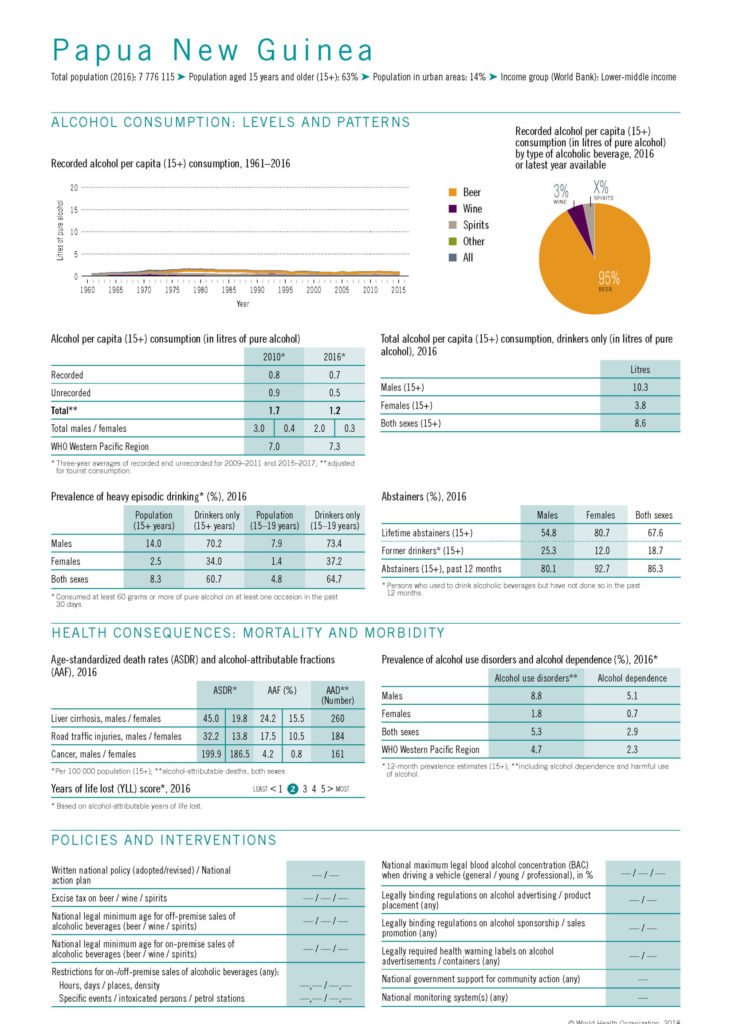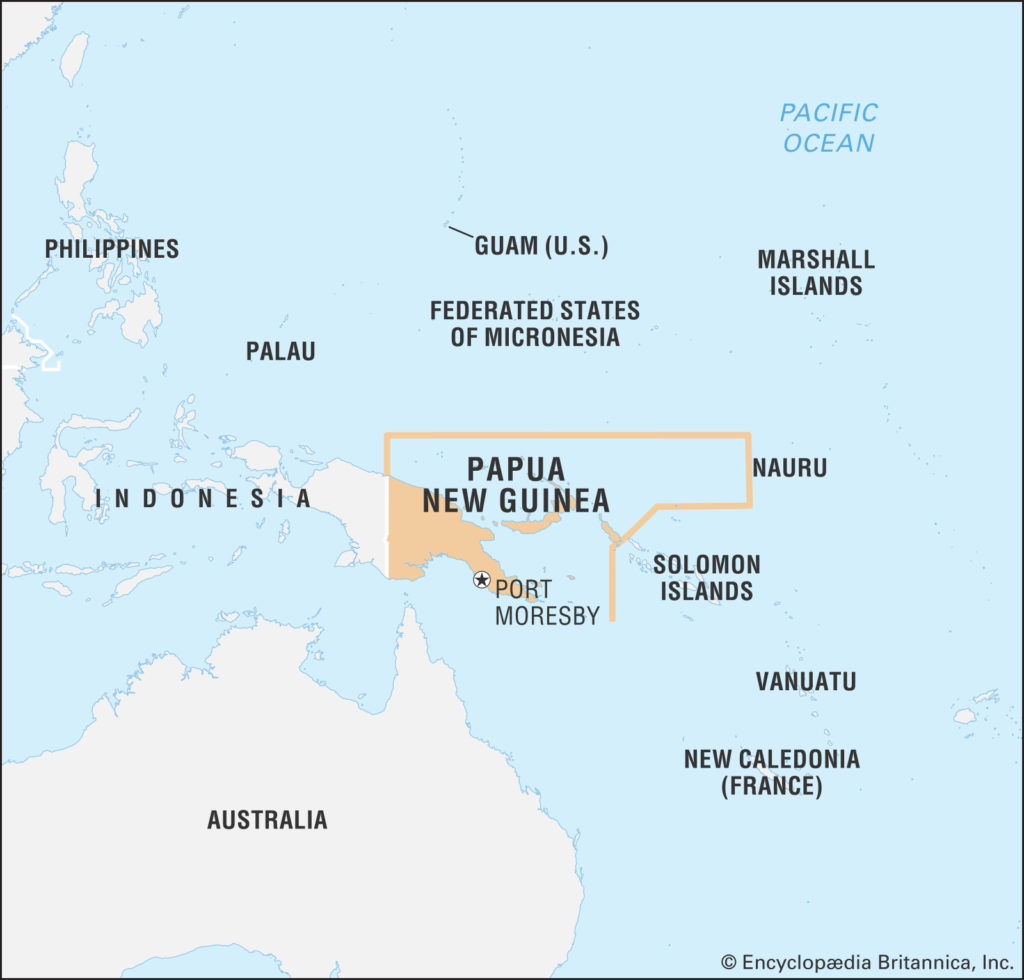Papua New Guinea is a country in Oceania that occupies the eastern half of the island of New Guinea and its offshore islands in Melanesia, a region of the southwestern Pacific Ocean north of Australia. Its capital is Port Moresby. It is the world’s third largest island country.
Papua New Guinea is one of the most culturally diverse countries in the world. As of 2019, it is also the most rural, as only 13.25% of its people live in urban centres. Most of the population of more than 8,000,000 people live in customary communities. It is known to have numerous groups of uncontacted peoples.
Currently, Papua New Guinea has no comprehensive national alcohol policy system. This has led to high availability of alcohol for very cheap prices and aggressive alcohol marketing.
Alcohol is promoted with attractive packaging similar to soft drinks. Therefore, youth have become focused on alcohol and are spending on alcohol rather than on achieving positive life goals. Alcohol harm in families and communities of Papua New Guinea has become pervasive. As per the country’s authorities there are rising violence and trauma cases in hospitals due to alcohol.
Alcohol harm and state of policy in Papua New Guinea

The World Health Organization reports that youth binge alcohol use among 15 to 19 year olds who consume alcohol is at a 64.7% prevalence – which is even higher for only boys at 73.4%.
Alcohol use disorder is a significant problem with 8.8% of men experiencing the condition. This is higher than the average for the WHO Western Pacific region.
Despite the high level of harm there is no comprehensive national level alcohol policy in Papua New Guinea.
Expert research by the National Research Institute (NRI) has recommended a national alcohol policy comprising measures such as pricing and taxation, amendments to existing liquor laws, awareness and education and the use of new technologies to counter-act driving under the influence (DUI) of alcohol. The NRI had also previously recommended forming a national alcohol and other drug center with regional centers in provinces to advise the government on cost-effective policy action, to provide research information and to coordinate with law enforcement.
The WHO Best Buys recommend three key policies – limiting alcohol availability, increasing taxes and advertising bans – to reduce the alcohol burden. The WHO SAFER package provides strategic guidance to governments on implementing high-impact policy solutions which reduce alcohol harm, prevent future harm and provide support for people with alcohol problems.

